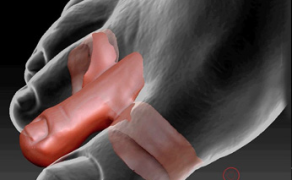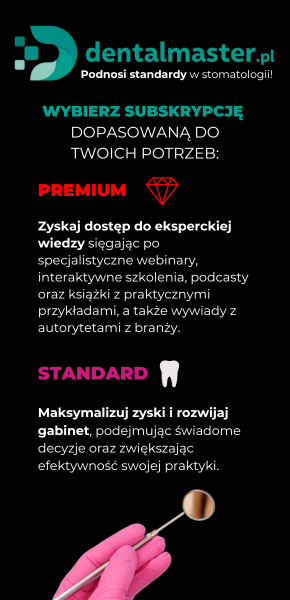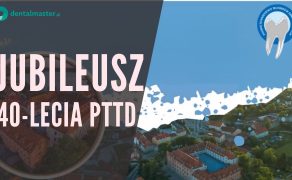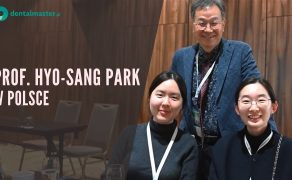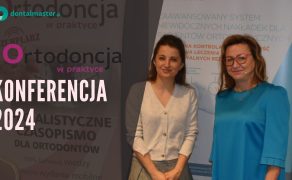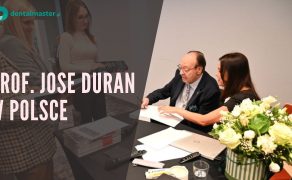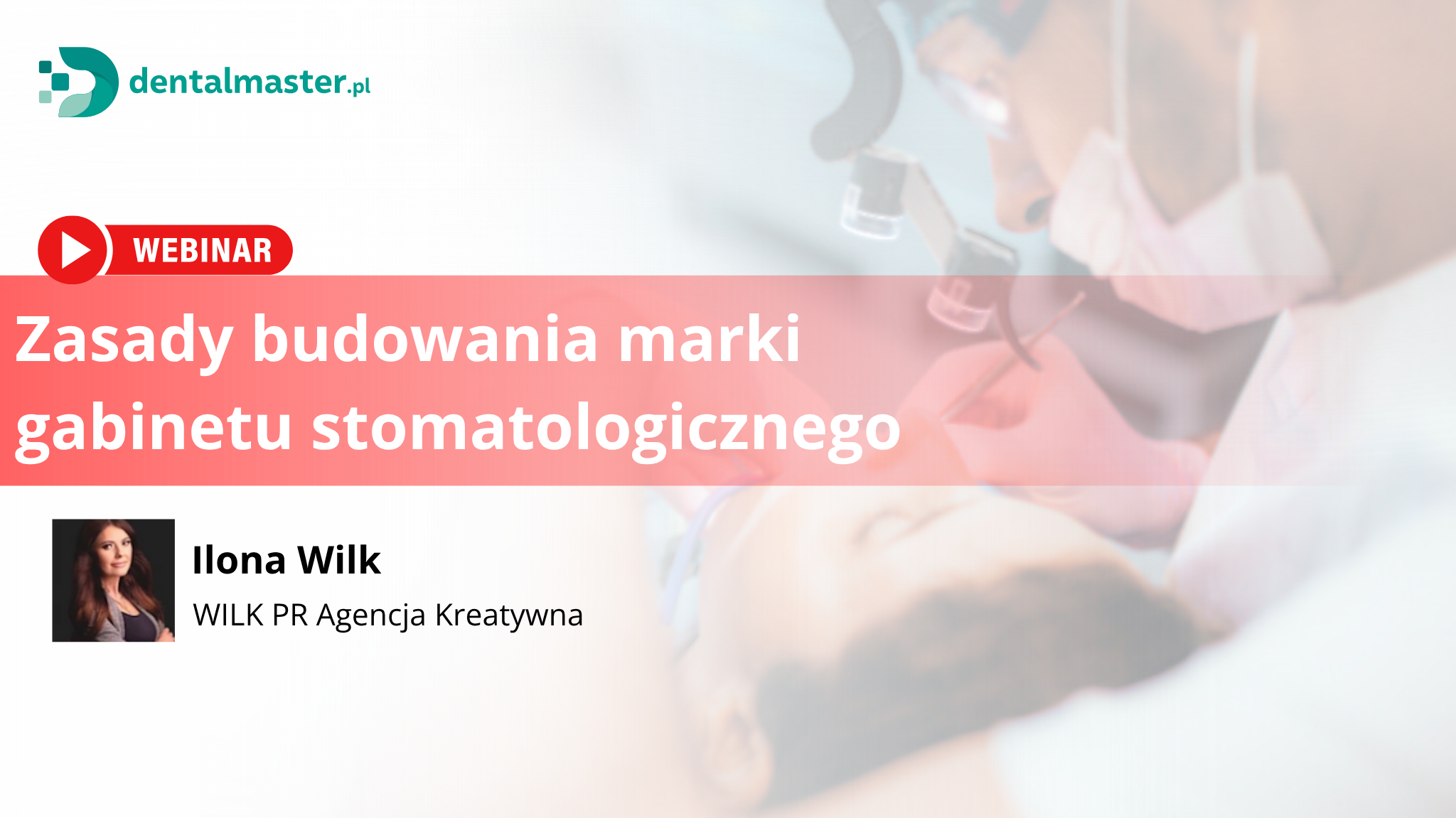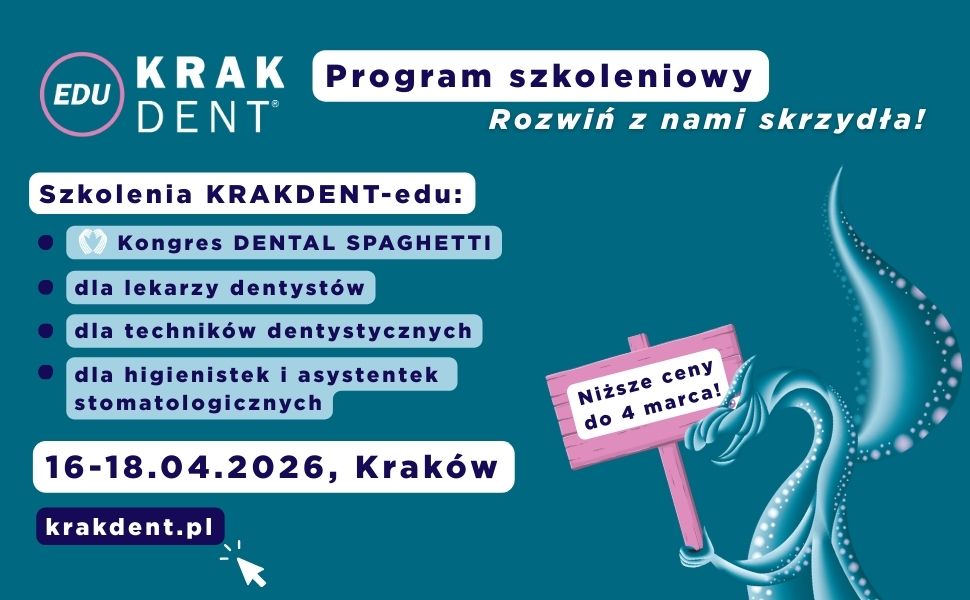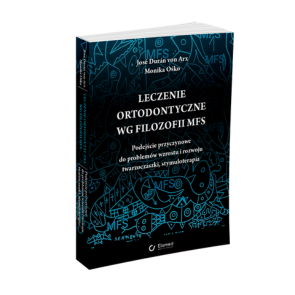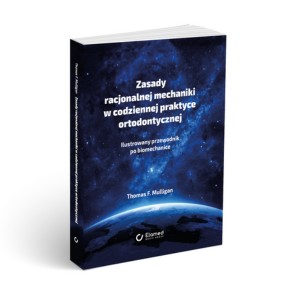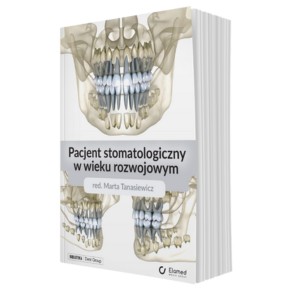Rekonstrukcja estetyczna zębów przednich z zastosowaniem licówek porcelanowych
The cementing procedure was carried out according to the protocol, after isolating the operating field with a cofferdam first (fig. 25).
The adhesion surfaces of teeth 12, 11, and 21 were thoroughly cleaned using paste and water. Then, after rinsing and careful drying of the teeth, a technique for etching tissues with 36% ortho-phosphoric acid was used. After etching the acid was rinsed off and the dental tissues were carefully dried. To begin with, the liquid Syntac Primer (Vivadent) was applied to the adhesively bonded surfaces. After 15 s they were blown, and Syntac Adhesive was applied to these same surfaces. After 10 s the adhesive surfaces were blown again and covered with the Heliobond Syntac Classic (Vivadent) resin and not polymerized. Cementing was performed with A1-colored light-cured cement without catalyst, applying it with excess to the adhesion surfaces of the veneers. All ceramic restorations were then applied to the teeth and, after removing the excess composite, initially polymerized. The final polymerization was carried out under a glycerine coat to block the access of air, allowing the composite to fully cure. The final touches on the contact surfaces were made using a scalpel, diamond-coated metal strips with a grit of 40 µm and 15 µm (Intensiv ProxoStrip), and a set of polishing rubbers. An occlusal control was performed according to normal rules. The final outcome, both functional and aesthetic, was fully satisfactory to our team and the patient (fig. 26-30).
[...]

którzy są subskrybentami naszego portalu.
i ciesz się dostępem do bazy merytorycznej wiedzy!




